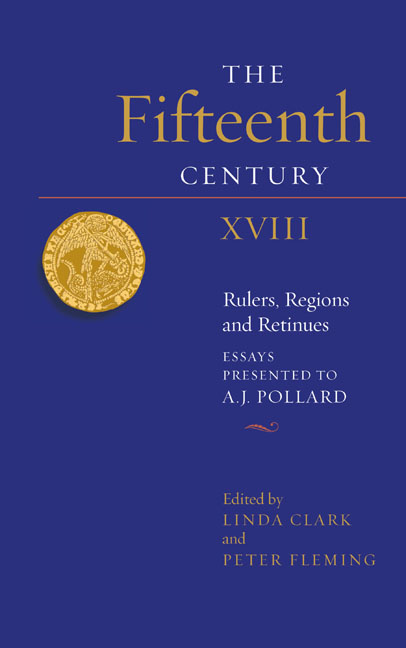The Strothers: A Tale of Northern Gentle Folk, Social Mobility and Stagnation in Late Medieval Northumberland
Published online by Cambridge University Press: 24 November 2020
Summary
‘Gentry were always rising; it is their habit.’ So wrote Sir James Holt, in a chapter entitled ‘The Northern Knights’, in his seminal work The Northerners. But why did the gentry ‘rise’? And why, contrary to Holt's dictum, did some of them ‘fall’? And – as in the case of the Strother family – why did some of them ‘rise’, and then stop ‘rising’? The driving forces and mechanisms of social mobility have proved a subject of abiding interest to historians of the political society of late medieval England. Social mobility, whether upwards or downwards, reveals much about the structure and functioning of that society, providing a measure of its permeability and flexibility.
The Strothers offer an intriguing case study of social mobility in the northern-most county of England. The family was strikingly prominent in the administration and political society of Northumberland in the mid fourteenth century – though they had first established themselves as landowners only in the reign of Edward II. Certainly, the family surname (a northern English word meaning ‘marsh’) hardly suggests an elevated origin, yet in just two generations the Strothers rose to the highest ranks of the county gentry, establishing two landed lineages. Conversely, however, the Strothers also provide an example of, if not quite downward social mobility, then social stagnation. Although both lineages retained their lands more or less intact, neither preserved the social eminence enjoyed by their founding fathers.
The first of the family to leave a trace in the records was William del Strother. A William de Strother served as a man-at-arms in the English garrison of Kirkintilloch castle, near Glasgow, in 1302–4, and was at the siege of Stirling castle in the summer of 1304. There is no reason to doubt that this was the same man as the William del Strother who, in about 1316, jointly with his wife acquired from Walter Corbet a life grant of the manor of Lanton in Glendale, Northumberland, some ten miles to the south-east of Coldstream. Whoever this William was, he does appear to have had his own armorial seal, which, along with his service as a man-at-arms, suggests a degree of wealth and status.
- Type
- Chapter
- Information
- The Fifteenth Century XVIIIRulers, Regions and Retinues. Essays presented to A.J. Pollard, pp. 41 - 56Publisher: Boydell & BrewerPrint publication year: 2020



